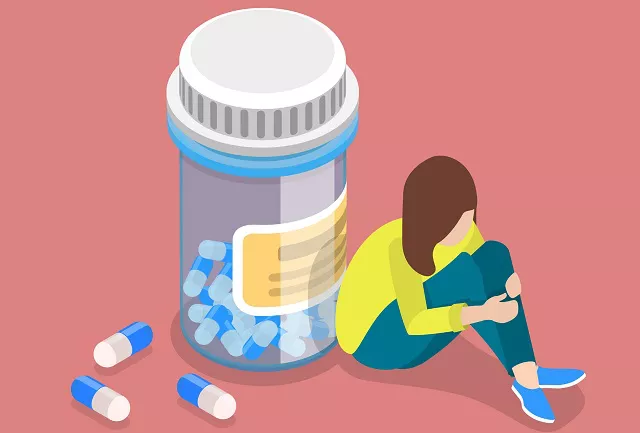Depression is becoming more common among both adults and teenagers in the United States, but many are not receiving the therapy they need, according to a recent report from the US Centers for Disease Control and Prevention (CDC).
Key Findings on Depression Rates
The CDC’s latest data, collected from August 2021 to August 2023, shows that over 13% of people aged 12 and older experienced depression during a two-week period. This is a sharp rise from 7.3% in 2015-16, nearly doubling in less than a decade. Depression rates are highest among adolescents aged 12 to 19, with about 19.2% affected, and decrease with age. Women are more likely than men to experience depression, with 16% of women and 10% of men reporting symptoms.
The survey asked participants about symptoms of depression in the past two weeks using a validated questionnaire, helping to identify those with depression. However, the COVID-19 pandemic disrupted the survey process, and changes in how the survey was conducted (such as shifting from face-to-face to phone or online interviews) may have influenced the results. Experts note that people may be more willing to report mental health issues in less personal settings, which could partly explain the rise in reported depression.
Impact on Teens and Gender Differences
Adolescent girls are particularly affected, with more than one in four reporting depression. A recent CDC survey found that over half of high school girls felt persistently sad or hopeless, nearly double the rate of boys. Experts suggest that girls tend to be more open about their feelings, while boys may be less vocal, though this is slowly changing.
Treatment Gaps
Despite the high rates of depression, only about 40% of those affected received counseling or therapy in the past year. Women were more likely than men to seek treatment, with 43% of women and 33% of men receiving therapy. Additionally, about 11.4% of US adults took prescription medication for depression in 2023, with women twice as likely as men to use these medications.
Middle-aged adults are more likely to use antidepressants than younger adults, even though younger people report higher rates of depression. This suggests that many young people with depression may not be getting medication or other treatments.
Broader Context and Expert Views
Experts believe the increase in depression is partly due to greater awareness and reduced stigma around mental health, making people more willing to report symptoms and seek help. However, they also point to ongoing social and economic stressors that have worsened mental health over recent years.
The COVID-19 pandemic intensified mental health challenges, leading to increased depression rates. Still, prescription rates for antidepressants have remained relatively stable since 2018, with only a temporary rise during the pandemic’s peak.
Conclusion
Depression affects a growing number of Americans, especially young people and women, yet many do not receive adequate treatment. The CDC’s findings highlight the need for better access to mental health care and continued efforts to reduce stigma and support those struggling with depression.
This article simplifies complex data and expert insights to help readers understand the rising rates of depression in the US and the challenges in treatment access.
Related topics:
- US Health Secretary Claims Autism Is Preventable, Sparks Backlash From Experts
- FDA Moves to Ban Compounded Versions of Ozempic and Wegovy
- Trapped in the Middle: The Silent Stress of the Sandwich Generation


